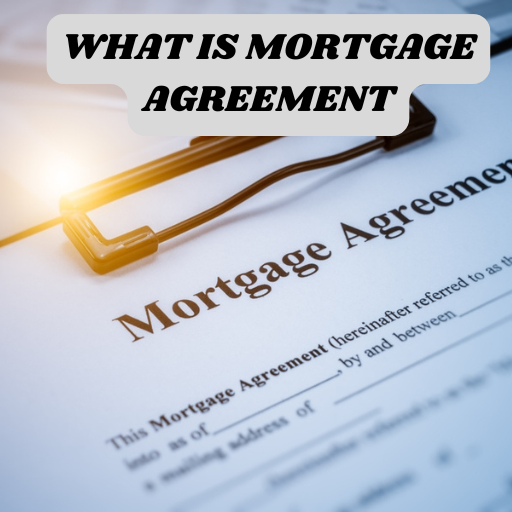A mortgage agreement is a legal contract between a borrower and a lender. It outlines the terms and conditions of a loan secured by a property. This agreement includes essential details like the loan amount, interest rate, and repayment schedule. It also specifies any additional fees that may apply. The agreement is designed to establish a legal relationship between the parties, ensuring the loan is managed properly during its term. Both the borrower and the lender have rights and responsibilities, and failing to meet these could have serious legal implications. This is why the agreement outlines the consequences of non-compliance and other significant aspects of the contract.
A mortgage agreement also involves a lien on the property to secure repayment of the loan. The borrower may need a co-signer or guarantor if their income doesn’t meet the lender’s requirements. The guarantor is responsible for the loan if the borrower defaults. This arrangement helps ensure that the loan is paid, giving both the lender and borrower confidence in the transaction. If the borrower cannot make payments, they may have to relinquish their claim to the property, which acts as a remedy for the lender. Buying property with a mortgage agreement is often a person’s biggest investment, making it important to understand the contract fully to avoid any issues.
What is a Mortgage Agreement?

A mortgage agreement is a legally binding contract between a borrower and a lender. This agreement outlines the terms and conditions under which a loan is given to purchase a property. The mortgage agreement ensures that the property acts as security for the loan. If the borrower fails to make payments, the lender can claim the property to recover the loan amount. These agreements are crucial for both parties to understand their rights and responsibilities clearly.
Key Terms for Mortgage Agreements
What is included in a Mortgage Agreement? A mortgage agreement typically includes essential details like the loan amount, interest rate, repayment terms, and any additional fees or charges. It also outlines the responsibilities of the borrower and the lender. The mortgage agreement defines how the loan will be paid back and what happens if the borrower defaults. It may also mention insurance requirements, taxes, and maintenance of the property.
When to use a Mortgage Agreement? A mortgage agreement is used when a borrower takes out a loan to buy a property, whether it’s a house, land, or commercial real estate. This document is essential for ensuring that the lender has security over the loan. Without a mortgage agreement, lenders may not have legal recourse if the borrower fails to repay. Homebuyers, property investors, and anyone involved in real estate transactions often need a mortgage agreement.
Do I need a Mortgage Agreement or Deed of Trust? The choice between a mortgage agreement and a deed of trust depends on the laws of the state where the property is located. Both documents serve the same purpose: securing a loan with the property as collateral. However, a deed of trust involves a third party, known as a trustee, who holds the title of the property until the loan is repaid. In contrast, a mortgage agreement does not require a trustee and is directly between the borrower and lender.
Legal Implications of Mortgage Agreements
Entering into a mortgage agreement comes with serious legal implications. The borrower agrees to make regular payments, and failure to do so may lead to foreclosure, where the lender can take ownership of the property. The agreement also includes legal consequences for both parties, such as penalties for missed payments, and outlines what happens in case of non-compliance. Understanding the legal aspects of a mortgage agreement is crucial for avoiding costly mistakes.
Tips for Negotiating Mortgage Agreements
When negotiating a mortgage agreement, it is important to focus on getting the best terms possible. Borrowers should compare different interest rates, check the repayment period, and consider any additional fees. It’s essential to negotiate the loan amount and ensure that the monthly payments fit your budget. Also, make sure to ask questions about prepayment penalties and any clauses that may affect the loan in the long run. A clear mortgage agreement can save you from future financial problems.
Mortgage Agreement Information
How to establish a lien on the property to secure a loan: A mortgage agreement places a lien on the property, which gives the lender the legal right to take the property if the borrower fails to repay the loan. This lien ensures that the lender has security over the loan. Establishing a lien is an essential step in finalizing a mortgage agreement and protecting the lender’s interests.
Satisfaction of Mortgage: Once the loan is fully repaid, a satisfaction of mortgage document is issued. This document proves that the borrower has met all the terms of the mortgage agreement, and the lien on the property is removed. It’s important to ensure that this document is filed with the county or local authority to confirm that the loan is paid off.
Sample Mortgage Agreement
A sample mortgage agreement can help understand the structure of the document. It provides a template that outlines the loan amount, interest rate, and repayment terms, helping borrowers know what to expect. Reviewing a sample agreement can prepare you for the actual mortgage agreement and make negotiations easier.
States that allow you to use a Mortgage Agreement
Most states in the U.S. allow the use of a mortgage agreement for securing a loan. However, some states prefer deeds of trust over mortgage agreements. It’s essential to check the specific regulations in your state before entering into a mortgage agreement.
The terms in your document will update based on the information you provide: When creating a mortgage agreement, the terms of the document will be customized based on the specific loan amount, interest rate, and repayment period. The agreement is tailored to reflect the details of the transaction and ensure that both the borrower and lender are protected.
Bottom Line
A mortgage agreement is a crucial document for anyone buying a property with a loan. It legally binds the borrower and lender, outlining the terms of the loan and providing security for both parties. By understanding the key terms, legal implications, and negotiation tips, borrowers can enter into a mortgage agreement confidently. Make sure to consult with a legal expert or use a trusted service to create a secure, legally binding document.
FAQs
- What is the purpose of a mortgage agreement?
A mortgage agreement secures a loan by using property as collateral, ensuring the lender can recover their funds if the borrower defaults.
- What happens if I fail to comply with a mortgage agreement?
Failure to comply with a mortgage agreement can lead to foreclosure, where the lender takes ownership of the property.
- Can I negotiate the terms of a mortgage agreement?
Yes, borrowers can negotiate interest rates, loan amounts, and other key terms of the mortgage agreement.
- How does a lien work in a mortgage agreement?
A lien gives the lender legal rights over the property until the loan is fully repaid.
- What is the difference between a mortgage agreement and a deed of trust?
A mortgage agreement involves two parties (borrower and lender), while a deed of trust involves a third party (trustee) who holds the property title.




One thought on “What is a Mortgage Agreement?”